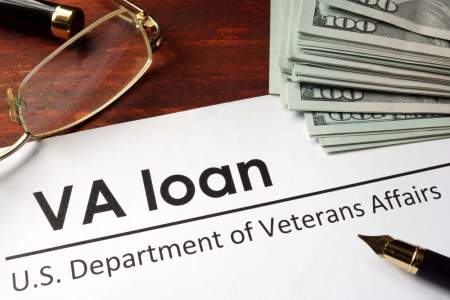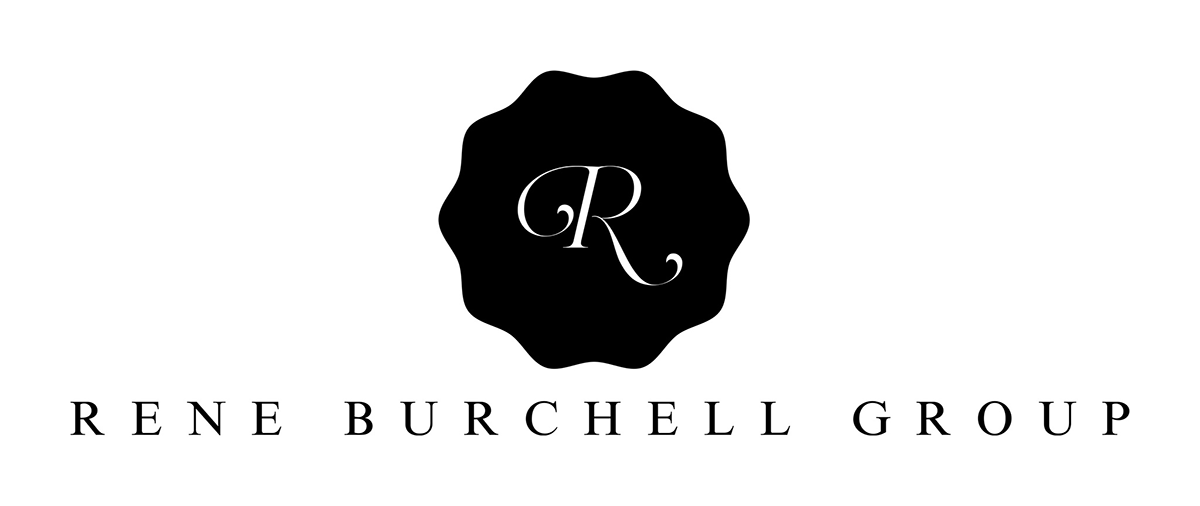You’ve found the house you want to call home: congratulations! In the United States, there are a series of mortgage options available. With all the choices, it can sometimes be overwhelming. To make things a bit easier, we will address the top types of loans you can take out to fund your home purchase, investigate who is eligible for each loan, and look at the pros and cons.
Paying Cash
 This option isn’t always available, but when it is, is it a good choice? Being ready to pay in cash gives you an edge with sellers who are eager to close the deal, and where markets move very fast due to a lack of available housing. You will also be taken more seriously, and you can just buy the home without the need of interactions with mortgage lenders. In addition, cash will save you the hassle of getting a mortgage and will ensure that you do not suffer should the market hit more turbulence – you might even get a deal, as you will save the seller significant time and paperwork.
This option isn’t always available, but when it is, is it a good choice? Being ready to pay in cash gives you an edge with sellers who are eager to close the deal, and where markets move very fast due to a lack of available housing. You will also be taken more seriously, and you can just buy the home without the need of interactions with mortgage lenders. In addition, cash will save you the hassle of getting a mortgage and will ensure that you do not suffer should the market hit more turbulence – you might even get a deal, as you will save the seller significant time and paperwork.
However, it might not always be the best financial decision. If you have the funds to buy your home, you will also likely be quite attractive to mortgage lenders, receiving incredibly low interest rates. Think of paying cash for your house as an investment which will “earn” you the interest you would have paid if you’d had a mortgage. If instead, you can invest that money elsewhere and see better gains, then you might as well do this: you will have to pay that interest, but you will still come out ahead, earning more than you would have avoided paying in the first place. In addition, you are tying up a lot of your money in one form of asset: what if the housing market turns again?
A mortgage also provides you a level of financial leverage that buying outright does not. If you pay for your a $300,000 home upfront and it appreciates to be worth $400,000, choosing to sell will result in a profit of $100,000 on your $300,000 – so you earned 33 cents for every dollar of investment. But, if the home appreciates in value and you have only paid off, for example, $35,000 of your loan, then you have made $100,000 on your $35,000 investment, which is a return of $2.86 for every dollar of investment: a significantly better return.
Finally, a mortgage or loan of any sort is liquid – it takes little time and effort to obtain cash out of what you have paid into the loan very quickly. However, it can take a significant amount of time to sell a house. Sure, you could borrow against your home through a home-equity loan, a line of credit, or reverse mortgage, but these all have fees, limits, and conditions that can be quite inconvenient.
Conventional Mortgage Loans
This type of loan is how most Americans finance their homes, as 2/3 of homeowner’s loans are conventional mortgage loans. A conventional mortgage loan is borrowed from a private lender, such as a bank, credit union, or mortgage company.
Since the market crash in 2008, the rules around who will qualify for a conventional loan have become stricter, but the background checks that will be carried out are roughly the same. You will be required to prove your income with a recent pay stub, and prove any assets with bank statements, investment statements, and proof of cash reserves. If a family member or friend will be helping you with the down payment, you will need proof of this as well. Your employer will probably be contacted, to establish that the loan is going to someone with a stable income. This can make the application process more difficult for those who are self-employed, and it will require much more paperwork regarding their business and income. Borrowers will also need to provide photo identification, verify that they are legally allowed to own property in the United States and supply a valid Social Security Number.
The requirements regarding your credit history and income are rather strict and specific. You will need a credit score of at least 680, and even that might be a little low for some lenders. Those with particularly good credit scores – generally those over 740 – can expect the lowest interest rates. In addition, even if your credit scores are around these numbers, if you have gone bankrupt or experience foreclosure in the last 7 years, you are unlikely to qualify. Lenders will also check your “debt to income ratio”, or, the amount of money you have available to spend per month on other debt, compared to your overall income: this will need to be around 36 percent, and definitely no more than 43 percent. Of course, you won’t receive a loan for the entire cost of the home: you will be expected to pay at least 20 percent of the total price as a down payment.
As the name suggests, this is the conventional way that most Americans secure the funds to purchase a home, but they aren’t for everyone. If you have a fair amount of current debt, a credit score lower than 650, have recently experienced bankruptcy or foreclosure, or cannot make the full down payment, perhaps this form of loan is not for you. It is also important to keep in mind that interest rates on this type of loan are generally higher than interest rates on mortgages from government-sponsored lenders. But, you do not need to pay for additional mortgage insurance, which those borrowing from government-sponsored lenders will have to do, and so the slightly higher interest might be the preferred option in the end.
FHA Loans
A mortgage from the Federal Housing Administration, or FHA, is a government-sponsored home loan. The requirements for this type of loan are less strict than those of a conventional mortgage, and so FHA loans are quite popular with first time home buyers and those who have experienced bankruptcy or foreclosure. They also tend to have lower interest rates than conventional loans, but borrowers will have to pay for mortgage insurance for either 11 years, or the full length of the mortgage depending on the size of their down payment.
Borrowers can expect background checks like those discussed under conventional mortgage loans: you will need to prove your income, that you have had a steady job, that you possess the right to live in the US and have a valid Social Security Number. An additional check when compared to the conventional loan, an FHA loan requires that the property be inspected by an approved home inspector, to ensure that the house meets current standards: if it does not meet current standards, repairs will need to be arranged with the seller, or the buyers will need to do them themselves. Also, different than conventional mortgage loans, FHA loans have a maximum limit in terms of how large they can be, which varies from state to state and county to county.
Income and credit scores will also be checked, but the requirements are a little lower here: you will be expected to have a credit score around 580. If your score is lower than this, you might still be eligible for an FHA loan, but you will likely be required to pay a larger down payment up front, and your interest rates will be higher. On the topic of down payments, you will be expected to provide a 3.5 percent down payment at minimum, but a down payment this low will result in you needing to pay for mortgage insurance for the duration of the loan, whereas, if your down payment is 10 percent or higher, you will only need to pay mortgage insurance for 11 years. For an FHA loan, you only need to be 2 years out of bankruptcy and 3 out of foreclosure, but you are expected to have re-established good credit. Finally, it is a requirement that the total upfront cost – the down payment, homeowner’s association fees, home insurance, property taxes, mortgage insurance and home insurance – cannot be more than 31 percent of your annual income, and, like in conventional loans, your debt to income ratio cannot be more than 43 percent.
FHA loans are much more available to those with lower savings and incomes, and those with lower credit scores, than conventional mortgage loans, and even those who have recently experienced bankruptcy or foreclosure can be eligible. Interest rates can also be lower on these types of loans as well. However, as discussed before, you will need mortgage insurance with this sort of loan, which you will either need to pay for 11 years or until the mortgage is entirely paid off.
VA Loans
 These are loans specifically for veterans. In a nutshell, if you are approved for a “VA loan” by Veterans Affairs, the VA steps in and provides a guaranty to conventional mortgage lenders: they inform a bank or credit union that, should you default on your loan, the VA will step in an ensure the lender still receives payment for the loan. This creates a kind of mortgage insurance, unlocking some of the best terms and interest rates available for veterans seeking home loans, without the need to pay for mortgage insurance. The VA doesn’t pay for loans, per se, but instead reassure lenders that they will receive payment and thus should not consider you a borrowing risk.
These are loans specifically for veterans. In a nutshell, if you are approved for a “VA loan” by Veterans Affairs, the VA steps in and provides a guaranty to conventional mortgage lenders: they inform a bank or credit union that, should you default on your loan, the VA will step in an ensure the lender still receives payment for the loan. This creates a kind of mortgage insurance, unlocking some of the best terms and interest rates available for veterans seeking home loans, without the need to pay for mortgage insurance. The VA doesn’t pay for loans, per se, but instead reassure lenders that they will receive payment and thus should not consider you a borrowing risk.
To be eligible for a VA loan, you must meet certain time in military service commitments or be a spouse of a service member who died in the line of duty or because of a related disability. You also cannot have been discharged dishonorably. There aren’t any income requirements, but borrowers are expected to have a stable source of income that will cover their monthly mortgage payments and related costs, while still having some income left over at the end of each month to cover the typical needs of the borrower’s family.
Beyond this, however, the private lenders who finance the home will have a set of criteria that borrowers must meet, relating to debt, income, and credit score, and so, just because you are eligible for a “VA Loan” does not guarantee that you will be able to procure an actual mortgage. In addition, they are only viable for certain types of homes: single-family houses, condos, modular housing, or some forms of multi-unit housing, all of which must be in “move in ready” condition. A VA loan does not work if you are trying to buy a fixer-upper, farm, or piece of land, and it can only be used to purchase primary residences.
There are many upsides to this loan, however, which make it a fantastic option for service members and their families. They are available regardless of whether you have ever experienced foreclosure or bankruptcy, you won’t need mortgage insurance, and you can purchase your home with no down payment whatsoever. You can make extra payments whenever you want, free of charge, saving you money in interest over the lifetime of the loan, and that interest rate will be incredibly low from the start: often, VA loans have interest rates even lower than FHA loans. There are also other loan programs that you can take advantage of, so long as you meet eligibility requirements: Cash Out Refinance loans allow you to take cash out of your home equity to repay other debt concerns, Interest Rate Reduction Refinance Loans can help lower your interest rate and thus decrease your monthly expenses, Native service members can receive special loans to purchase, construct, or improve homes on Federal Trust Land, and those who have service-connected disabilities can receive grants to purchase or build an adapted home, or adapt their current home.
USDA Loans
For borrowers who aren’t wealthy and cannot get a traditional mortgage, the USDA – the department of agriculture – offers loans for the purchase of rural or suburban homes. The USDA’s Rural Development Guaranteed Housing Loan Program is designed to improve the economy and quality of life for those living in rural America – they helped around 127,000 families purchase and upgrade homes in 2017 alone.
There are a few different kinds of USDA Loan. A loan guarantee from the USDA works much like a VA loan: the USDA doesn’t issue the loan itself. Instead, it puts forth its guaranty to a local mortgage lender, which allows home buyers to get very low interest rates, even with a down payment of 0 percent. Unlike VA loans, though, you can also receive a direct loan issued by the USDA. These are for low and very low-income applicants. You can also access a home improvement loan or grant – in the case of grants, this is an outright financial award that you do not have to pay back. Loans and grants can also be combined, providing up to $27,500 in assistance.
To qualify, you must be under a certain income limit, and this limit varies depending on your location and the size of your family. Like VA loans, they can only be used to purchase your primary residence. Like all loans, they can only be obtained by a US citizen, and you must have had a dependable income for the last two years. Your monthly mortgage payments cannot be more than 21 percent of your total income, and total debt payments per month cannot be more than 41 percent. Finally, you are required to have an “acceptable” credit history. Anybody with a credit score of 640 or higher will receive streamlined processing, while those with lower scores will receive more scrutiny, although a lack of credit history or limited credit history can still fulfill requirements with rental and utility payment histories.
USDA loans are issued based on greatest need. An individual who is without safe and sanitary housing, is unable to secure a loan from traditional lenders, and/or has an income below or equal to the low-income limit for their location will be more likely to receive a loan. Usually, direct loans are made for homes 2000 square feet or less, and how large the loan can be is limited by another limit which varies from state to state – in pricey areas, it can be around half a million dollars, whereas in other parts of rural America, it can be as low as $100,000.
Loan Terms & Conditions
Your mortgage will come with a set of specific conditions that lay out exactly how it will function: how long it will be, how and when you are expected to pay it back, what changes you are able to make, and so on. One of the most important conditions to pay attention to is whether it is a variable rate mortgage or a fixed rate mortgage. A variable loan has an interest rate which will fluctuate along with the economy – if interest rates in general go up, then your loans interest rate will go up, and if interest rates go down, your interest rate will go down. Alternatively, a fixed rate mortgage is one where the interest rate remains the same for the duration of the contract. Usually, this rate is a little higher than what a variable interest rate would be, but it will stay this same rate even if the market changes drastically, and so it might be better in the long run. Since the market crash in 2008, it has been more difficult to get a fixed interest rate loan, and the criteria to qualify for one are quite strict.
How you will pay the mortgage can vary as well. A repayment mortgage is the typical sort of mortgage, where you will pay off the interest and total amount of the loan over the entire length of the contract, usually in monthly installments. An interest-only mortgage will require that you pay for only the interest over the length of the term, and the total amount borrowed will then be paid at the end of the term. The latter is less common in mortgage loans, however.


